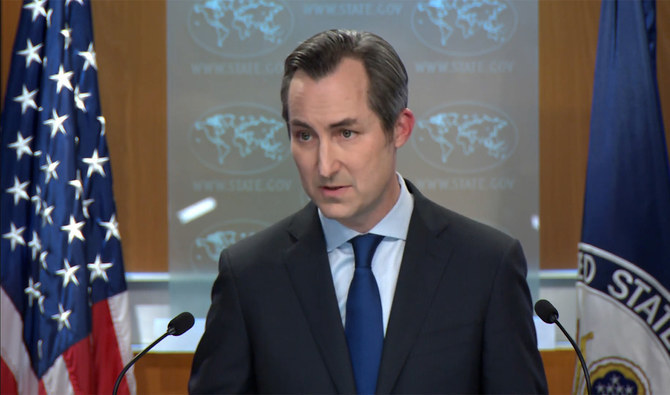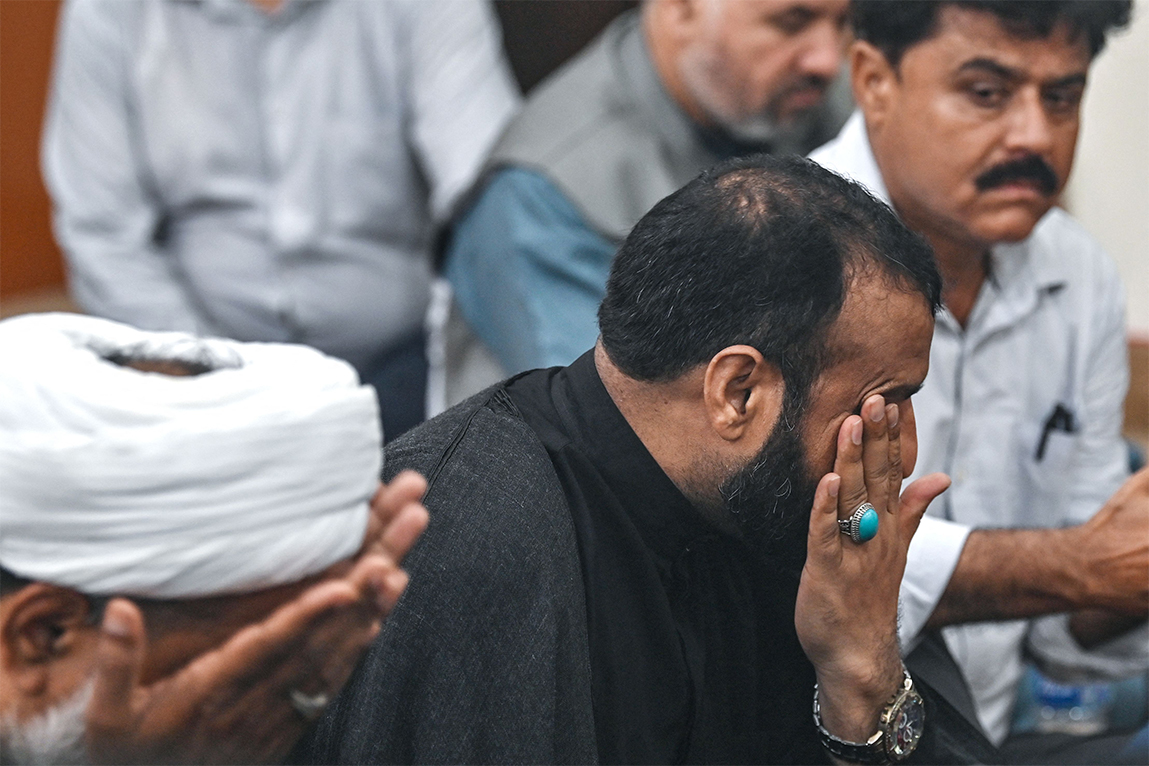ISLAMABAD: Washington will engage with newly elected Pakistani Prime Minister Shehbaz Sharif’s government to advance both countries’ “shared interests,” the US State Department spokesperson said this week a day after Pakistan’s newly elected premier was sworn in.
Once close allies during the Cold War, relations between Pakistan and the US have seen ups and downs over the years. Ties between Islamabad and Washington deteriorated when the Taliban seized power in Afghanistan in August 2021. The US suspected Pakistan provided sanctuary to the militants, a charge Islamabad has always denied.
Relations between the two countries further soured when former prime minister Imran Khan accused Washington of orchestrating his ouster from office via a parliamentary vote in April 2022, alleging that the US colluded with his political rivals to oust him. Washington has denied the allegations.
The previous Pakistani government under Sharif, from April 2022 to August 2023, made efforts to improve ties with Washington. In September 2022, Sharif met US President Joe Biden at a reception for world leaders in New York. During the brief interaction between the two leaders, Biden resolved to help Pakistan as it suffered from the cataclysmic 2022 floods.
Sharif, 72, was sworn in as Pakistan’s prime minister for a second time on Monday. He heads a country facing an overlapping security, economic and political crises.
“We have said before, we value our alliance — long standing partnership — with Pakistan and have always viewed a strong, prosperous, and democratic Pakistan is as critical to United States-Pakistan interests,” US State Department spokesperson Matthew Miller said during a press briefing on Monday.
“And our engagement with new prime minister Shehbaz Sharif and his government will continue to focus on advancing the shared interests.”
Sharif’s niece, Maryam Nawaz Sharif, was elected last Monday as Pakistan’s first woman chief minister. She was elected to the chief executive’s post of Punjab, Pakistan’s most prosperous and populous province. The post has long been a stepping stone to becoming the country’s prime minister.
Miller said Maryam’s election to the post was a “milestone” in Pakistani politics.
“We look forward to cooperating with Pakistan more broadly on integrating women more fully into the country’s political life, in the economy, including through the US-Pakistan Women’s Council, civil society and other decision-making spaces,” he said.
Sharif was elected to the prime minister’s post three weeks after the Feb. 8 general elections threw up a hung National Assembly, unleashing weeks of protests by opposition parties over allegations of rigging and vote count fraud.
Pakistan’s newly elected prime minister now faces an overlapping trio of political, economic and security crises, much like in his previous tenure. Sharif’s first order of business will be negotiating a new bailout deal with the International Monetary Fund (IMF). The current IMF program expires this month.
The new PM will also have to tackle a spike in attacks by the Pakistani Taliban and other groups, including separatists.

















